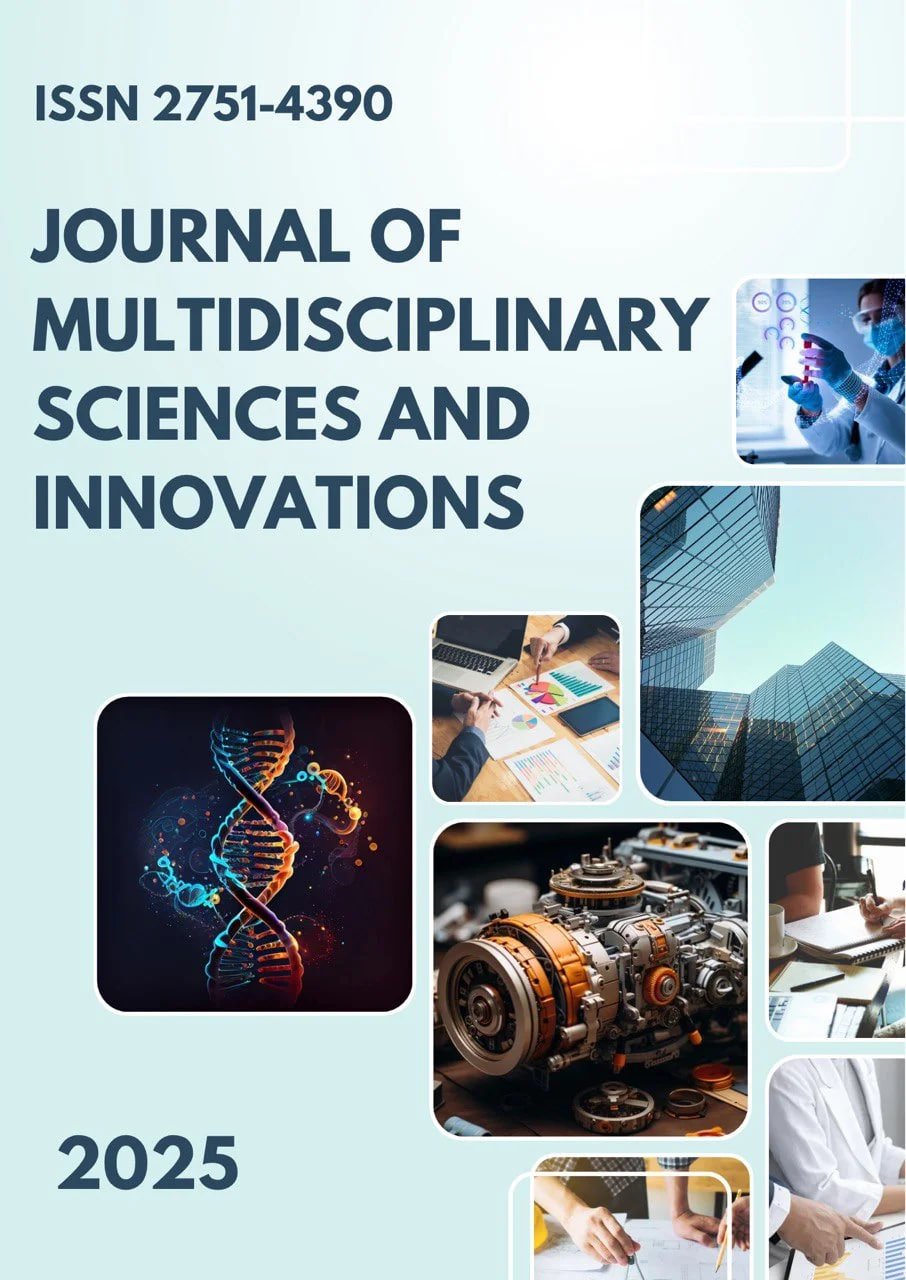ORAL CORRECTIVE FEEDBACK TECHNIQUES IN ESP CLASSES
Main Article Content
Abstract
This article analyzes the types of oral corrective feedback used by teachers in English for Specific Purposes (ESP) classes and their effectiveness. The study examines the effects of different forms of correction – recast, elicitation, metalinguistic feedback, clarification request, explicit correction, and repetition – based on teacher-student interaction patterns. The article identifies effective approaches to correcting grammatical, pronunciation, and lexical errors in ESP classes and recommends methods that have a positive impact on student motivation and language learning. The results of the study show that interactive and contextual correction methods play an important role in improving students' speech accuracy.
Downloads
Article Details
Section

This work is licensed under a Creative Commons Attribution 4.0 International License.
Authors retain the copyright of their manuscripts, and all Open Access articles are disseminated under the terms of the Creative Commons Attribution License 4.0 (CC-BY), which licenses unrestricted use, distribution, and reproduction in any medium, provided that the original work is appropriately cited. The use of general descriptive names, trade names, trademarks, and so forth in this publication, even if not specifically identified, does not imply that these names are not protected by the relevant laws and regulations.
How to Cite
References
1.Lyster, R., & Ranta, L. (1997). Corrective feedback and learner uptake: Negotiation of form in communicative classrooms. Studies in Second Language Acquisition, 19(1), 37–66.
2.Sheen, Y. (2010). The role of oral and written corrective feedback in SLA. Studies in Second Language Acquisition, 32(2), 169–179.
3.Ortikov, M. K. U. (2024). MEANS OF CONNECTING PIECES OF ARTISTIC TEXT. Oriental renaissance: Innovative, educational, natural and social sciences, 4(7), 178-183.
4.Bitchener, J., & Ferris, D. R. (2012). Written corrective feedback in second language acquisition and writing. Routledge.
5.Nassaji, H. (2016). Interactional feedback in second language teaching and learning: A synthesis and analysis. Language Teaching Research, 20(4), 535–562.
6.Yang, Y., & Lyster, R. (2010). Effects of form-focused practice and feedback on Chinese EFL learners’ acquisition of regular and irregular past tense forms. Studies in Second Language Acquisition, 32(2), 235–263.
7.Rahimi, M., & Zhang, L. J. (2021). Exploring teachers’ oral corrective feedback practices in EFL classrooms: The role of individual and contextual factors. System, 99, 102482.
8.Yuldasheva Z. The role of reflective approach and feedback in foreign language teaching. // Language and Literature Education, 2021, No. 3. – P. 27–33. (Yo‘ldosheva Z. Chet tillar ta’limida reflektiv yondashuv va feedbackning roli. // Til va adabiyot ta’limi, 2021, №3. – B. 27–33).
9.Saidova F. Formation of communicative competence in professional English lessons. – Tashkent: TSUL Publishing House, 2022. – 120 p. (Saidova F. Professional ingliz tili darslarida kommunikativ kompetensiyani shakllantirish. – Toshkent: TDYU nashriyoti, 2022. – 120 b.)
10. Djampulatova, N. (2025). THE ROLE OF LANGUAGE IN COMPUTER LINGUISTICS AND ARTIFICIAL INTELLIGENCE. Общественные науки в современном мире: теоретические и практические исследования, 4(13), 9-11 (Djampulatova, N. (2025). KOMPYUTER TILSHUNOSLIGI VA SUN’IY INTELLEKTDA TILNING ROLI. Общественные науки в современном мире: теоретические и практические исследования, 4(13), 9-11.)
11.Abdullayeva, M. (2022). The Appearance Of The Term “Education Dictionary” In World Linguistics Is Analyzed. Oriental renaissance: Innovative, educational, natural and social sciences, 2(Special Issue 28-2), 48-52.
12.Abdullayeva, M., and M. Maxmudova. "Importance of legal education characteristics." Science and Innovation 1.7 (2022): 1311-1314.
13.Abdullayeva, M., & Bekmahammadova, F. (2025). INGLIZ TILINI O'RGANISHDA SUNIY INTELLEKTDAN FOYDALANISH. Pedagogik islohotlar va ularning yechimlari, 12(01), 136-137.
14.MUZAFFAR XOJIMUROD O'G'LI ORTIQOV. (2024). ROLE OF VIRTUAL REALITY TECHNOLOGY IN EDUCATIONAL PROCESSES . TADQIQOTLAR.UZ, 31(2), 131–133. Retrieved from https://tadqiqotlar.uz/new/article/view/2042

